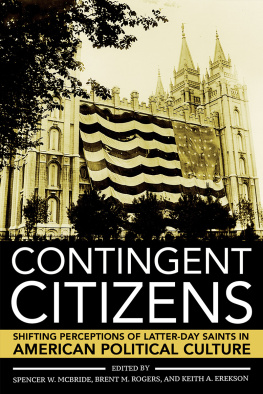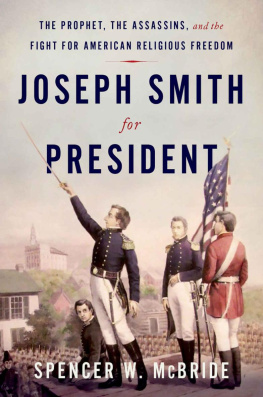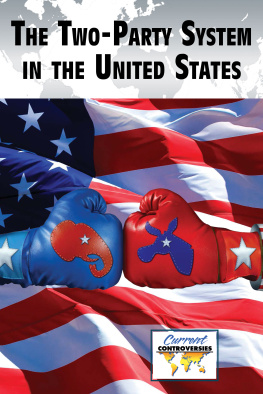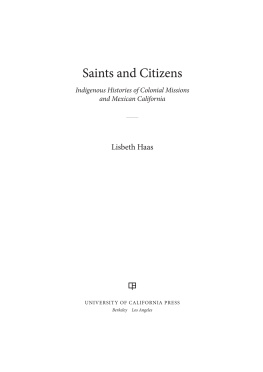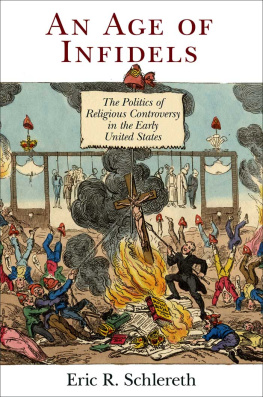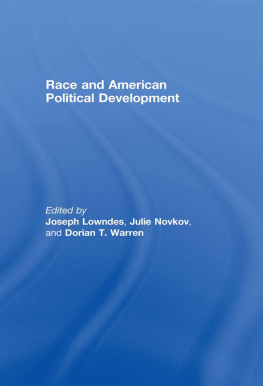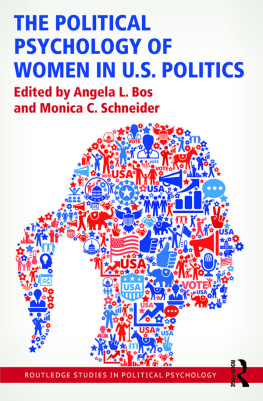A NOTE ON STYLE
The church founded by Joseph Smith in 1830 was called the Church of Christ. In 1834 the name changed to the Church of the Latter Day Saints. Then, in 1838, the church adopted the name the Church of Jesus Christ of Latter-day Saints. While this has remained the churchs official name since 1838, throughout its history the church has been alternately referred to as the Mormon Church or the LDS Church. The term Mormon has also been used to refer to other individuals, institutions, and practices that trace their origins to Joseph Smith. In this book we use the official name of the church as the first reference in each chapter and use the church as a shortened reference thereafter. When referring to church members, we use Latter-day Saints, Saints, and Mormons interchangeably. We also use Mormon or Mormons in proper nouns, historical context, and quotations from historical sources.
ABOUT THE CONTRIBUTORS
Keith A. Erekson is a writer, speaker, and public historian who currently serves as director of the Church History Library of the Church of Jesus Christ of Latter-day Saints. He earned a PhD in history from Indiana University and attained the rank of associate professor of history at the University of Texas at El Paso. He is the author of Everybodys History: Indianas Lincoln Inquiry and the Quest to Reclaim a Presidents Past (Amherst: University of Massachusetts Press, 2012) and the editor of Politics and the History Curriculum (New York: Palgrave Macmillan, 2012) and Mormon Womens History (Madison, NJ: Fairleigh Dickinson University Press, 2017).
Matthew C. Godfrey is a general editor and the managing historian of the Joseph Smith Papers. He holds a PhD in American and public history from Washington State University and is the author of Religion, Politics, and Sugar: The Mormon Church, the Federal Government, and the Utah-Idaho Sugar Company, 19071921 (Logan: Utah State University Press, 2007), which was a cowinner of the Mormon History Associations Smith-Petit Award for Best First Book.
Amy S. Greenberg is the Edwin Erle Sparks Professor of History and Womens Studies at Penn State University. She is the author of four books, including A Wicked War: Polk, Clay, Lincoln, and the 1846 Invasion of Mexico (New York: Knopf, 2012), Manifest Manhood and the Antebellum American Empire (New York: Cambridge University Press, 2005), and Cause for Alarm: The Volunteer Fire Department in the Nineteenth-Century City (Princeton: Princeton University Press, 1998). She is currently writing a biography of Sarah Chil-dress Polk.
J. B. Haws is associate professor of church history and doctrine at Brigham Young University and the author of The Mormon Image in the American Mind: Fifty Years of Public Perception (New York: Oxford University Press, 2013).
Adam Jortner is the Goodwin-Philpott Professor of Religion in the history department at Auburn University. He is the author of The Gods of Prophetstown: The Battle of Tippecanoe and the Holy War for the American Frontier (New York: Oxford University Press, 2012) and Blood from the Sky: Miracles and Politics in the Early American Republic (Charlottesville: University of Virginia Press, 2017).
Matthew Mason is professor of history at Brigham Young University. He is the author or editor of several books including Apostle of Union: A Political Biography of Edward Everett (Chapel Hill: University of North Carolina Press, 2016) and John Quincy Adams and the Politics of Slavery: Selections from the Diary (New York: Oxford University Press, 2017).
Patrick Q. Mason is Leonard J. Arrington Chair of Mormon History and Culture at Utah State University. He is the author or editor of several books, including, most recently, Mormonism and Violence: The Battles of Zion (New York: Cambridge University Press, 2019) and What Is Mormonism? A Students Introduction (New York: Routledge, 2017).
Spencer W. McBride is a historian and documentary editor of the Joseph Smith Papers and the author of Pulpit and Nation: Clergymen and the Politics of Revolutionary America (Charlottesville: University of Virginia Press, 2016). He is currently researching and writing a book on Joseph Smiths 1844 presidential campaign.
Benjamin E. Park is assistant professor of history at Sam Houston State University. He is the author of American Nationalisms: Imagining Union in an Age of Revolutions (New York: Cambridge University Press, 2017) and Kingdom of Nauvoo: The Rise and Fall of a Religious Empire on the American Frontier (New York: W.W. Norton/Liveright, 2020), and is currently the co-editor of Mormon Studies Review.
Thomas Richards Jr. is the author of Breakaway Americas: The Unmanifest Future of the Jacksonian United States (Johns Hopkins University Press, 2020), as well as several articles and essays on expansion in the Jacksonian era. He was the 201718 David S. Weber Fellow at the Clements Center for Southwest Studies, and he has also received fellowships from the McNeil Center for Early American Studies, the Bancroft Library, the Huntington Library, and the Charles Redd Center for Western History. He received his PhD from Temple University in 2016, and is currently a history teacher at Springside Chestnut Hill Academy in Philadelphia.
Brent M. Rogers is associate managing historian of the Joseph Smith Papers. He holds a PhD from the University of NebraskaLincoln and is the author of Unpopular Sovereignty: Mormons and the Federal Management of Early Utah Territory (Lincoln: University of Nebraska Press, 2017).
Natalie K. Rose is a graduate of the Michigan State University history doctoral program. Her dissertation, Our Utah Girls: Girls and Young Women in the Transitional Mormon Church, focuses on the intersection of girl-hood, religion, and modernity around the turn of the twentieth century. Her article Courtship, Marriage, and Romantic Monogamy: Young Mormon Womens Diaries at the Turn of the Twentieth Century was published in the Journal of Mormon History (January 2016). Her next two projects explore questions of politics, gender, and religion. She is writing an article about womens political activism and religiosity in Michigan during the campaign for the Equal Rights Amendment. Rose has won fellowships and awards from the Charles Redd Center for Western Studies and the Graduate School at Michigan State University. Most recently, she has taught gender history and history of religion courses at MSU.
Stephen Eliot Smith has been a member of the Faculty of Law at the University of Otago in Dunedin, New Zealand, since 2006. Raised in Alberta, Canada, he received degrees from the University of Alberta, Queens University, and Harvard Law School. He was a law clerk for the judges of the Court of Queens Bench and Court of Appeal of Alberta, was admitted to the bar in Alberta, and has been a visiting professor of international and comparative law at the University of Oklahoma. His areas of academic interest include legal history, criminal law, international law, and church and state relations.
Rachel St. John is a native of California and is associate professor of history at the University of California, Davis, where she joined the faculty in 2016. She is the author of Line in the Sand: A History of the Western U.S.Mexico Border (Princeton: Princeton University Press, 2011). Her current book project, The Imagined States of America: The Unmanifest History of Nineteenth-Century North America, explores the diverse range of nation-building projects that emerged across the continent in the nineteenth century.
ACKNOWLEDGMENTS
This book benefited from the support of several people not listed in the table of contents. We thank the Church History Department of The Church of Jesus Christ of Latter-day Saints for sponsoring and hosting the symposium in which the ideas in this book were first expressed and debated. The leadership of the department, Steven E. Snow, Reid L. Neilson, and Matthew J. Grow, enthusiastically facilitated the event. Lis Allen played a vital role in managing the symposiums arrangements, and Mike Henry and Brian Warburton of the Church History Library arranged for a display of relevant archival documents at that event.

